|
Spring, 2014
Semester Calendar of Owen Williamson, MA, Instructor
Instructor reserves the right to modify calendar to meet the needs of the class. Note: Certain links on this OpenCourseWare page lead to articles or pages on other servers that require permission or a subscription to access. If you have trouble opening these pages, please check with your local or campus librarian or with the author of this page for more information on access. I am in the process of linking alternative, completely open-access resources for all assignments. O.W. |
||||||||
|
Week |
Book
|
Book: The Public Life of Capt. John Brown, by James Redpath. Note: this book is free online, but can be ordered in print from Amazon.com here.
|
Assignments 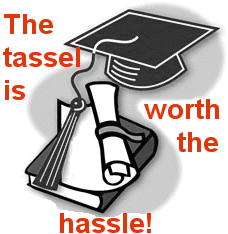 |
|||||
|
Week 1: Jan. 21-24, 2014
|
Chapter 2: Academic Reading and Learning |
 |
Homework: Welcome survey. Introductions. Introduce book. Discuss John Brown and his context. Resource: Brain centers and reading. Do first weekly journal on beginning of John Brown, up to p. 32.
|
|||||
|
Week 2: Jan. 27 - 31, 2014
|
Chapter 2: Academic Reading and Learning (cont.) |
Read book, pps 33- 85.
|
"John Brown's Body" (version by Pete Seeger) Tentative: Respond to "I Hate Reading" Do Welcome survey if not already completed. Read: A Dozen Things You Can Do On Your Own to Improve Your Reading Selection: "The Curious Behavior of the Milky Way's Central Black Hole." (link may not work off campus) Discuss Wu Wei--"non-effort," and reading. Resource: "Using DNA To Trace Michelle Obama’s Past" Resource "Working Alone Won't Get You Good Grades" Resource: English Language Problems Resource: Sample First Sentences
|
|||||
|
Week 3: Feb 3-7, 2014 |
Chapter 3: The Traits of Academic Reading |
Read book, pps 85-130.
|
In-class assignment: Summary practice on "Why Men Cheat" by Constance Holden.
In-class assignment:
Census day Wed., Feb. 5, 2014
Meet in
Summary example: Original article:
Longitudinal Links Between Fathers' and Mothers' Harsh Verbal Discipline and
Adolescents’ Conduct Problems and Depressive Symptoms, by Ming-Te Wang Example of a real-world summary: "Yelling Doesn't Help, May Harm Adolescents" Intro to responses/commentaries. View Response PowerPoint Resource: It’s time to start calling ‘domestic’ violence what it really is, by Jim LaPierre.
|
|||||
|
Week 4: Feb. 10-14, 2014 |
Chapter 3: The Traits of Academic Reading (cont.) |
Read pps 131-176 of book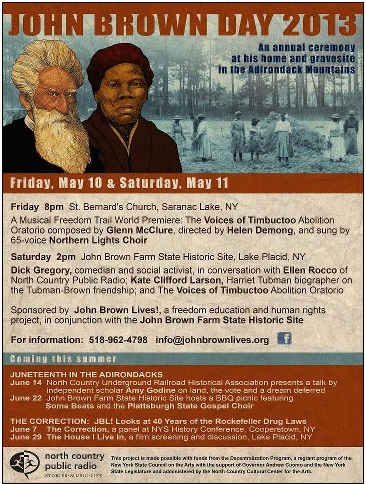 |
Resource (Note: Links may work only on UTEP campus computers):"Caudate Over Heels in Love." OR Alternative selection: Resource: "Asians are far more likely than Anglos to be college-educated "Resource: NY Times article on college dropouts. Videos: Harper's Ferry. (VOA). Harpers Ferry and John Brown (WV Public Broadcasting). Song of John Brown (Version by William Weston Patton).. Friday: Resource: "The Defence of Lawrence," by Richard Realf, on pps 120-121 of Redpath's book. Paraphrase/translation exercise. |
|||||
|
Week 5: Feb. 17-21, 2014
|
Chapter 18: Sentence Basics | Read pps 177-221 of book. |
SUMMARY Paragraph Introduced--10% of grade!
On pps. 175-179 of Redpath's book. Instructions pending.
Resource: In-class exercise: Analyze and respond to "Milwaukee." How to argue: The ISARC format for argument (a guide) Selection: Plagiarism Scandal in Germany. Respond: Should UTEP revoke the degrees of students who graduate but are later found to have plagiarized? Friday: Peer review of summary paragraph.
|
|||||
|
Week 6: Feb. 24-28, 2014
|
Chapter 4: Academic Writing and Learning |
|
SUMMARY paragraph: Final draft due Monday, in class
(printed).
Wednesday: Finding implications and inferences: Finding what is not said in the text: 1. Resource: Taking one for the team. (May work only on campus computers). Friday:
|
|||||
|
Week 7: Mar. 3-7, 2014
|
Chapter 19: Simple, Compound, & Complex Sentences | Read pps 270-295 (end) of book |
Introduce weekly reading journals for rest of semester. Analysis/ response practice:
Wednesday: Briefly review structures of the summary, the argumentative/persuasive essay and the comparative essay. Introduce/discuss other common academic writing structures: Chronological, process, listing, and cause and effect. Friday: Study day (Review Redpath's book.) 
|
|||||
| Spring break Mar. 10-14, 2014 | ||||||||
|
Week 8: Mar. 17-21, 2014
|
Chapter 5: The Traits of Academic Writing (cont.) |
|
1. Would Contact with Extraterrestrials Benefit or Harm Humanity? by Baum, Haqq-Misra and Domagal-Goldman. OR (alternate choice) 2. Assessment and Diagnosis of Sexual Addiction, by Coleman-Kennedy and Pendley (link may not work off campus) ------------------------------------- Tentative: Midterm Exam ------------------------------------ Wednesday: Reader response: The dark side--how to attack a text or standpoint. Unclear (Obscure): See Cartoon. Tentative resource: "Texas Declaration of Causes" (Instructions to be provided).
|
|||||
|
Week 9: Mar. 24-28, 2014
|
Chapter 16: Summarizing |
|
Freshman midterm grades due Mar. 26.
Optional Resource (song): The Ballad of Ho Chi Minh (YouTube) (in English). See also Giải phóng Sài Gòn part 7 (YouTube) (in Vietnamese). Optional Resource (full length movie): The Liberation of Saigon (YouTube) (in Vietnamese). Optional Resource (song): Comandante Che Guevara (YouTube) (in Spanish) Optional Resource (song): Dicen que dicen que vieron pasar a Farabundo Martí (YouTube) (in Spanish). Optional Resource (movie preview): Spartacus (YouTube) (in English). Optional Resource (movie preview): The Time of the Butterflies (YouTube) Optional Resource (song): Carlos Fonseca (YouTube) (In Spanish). Optional Resource (video): Pedro Albizu Campos (In Spanish). Optional Resource (full length movie): Sandino (YouTube) (in Spanish).
Friday: Brief analysis question from More about Alcoholism: What is the easiest way to self-diagnose alcoholism? Discuss "Tone." Identifying genre in reading and writing. Resources:
|
|||||
|
Week 10: Mar. 31-Apr. 4, 2014
|
Chapter 16: Summarizing (cont.) |
|
Cesar Chavez Day Observance (No Classes): Monday, Mar. 31 Comparison Essay continued Wednesday: How to do a comparison (two ways). Resource for comparing people: Comparison (Synkrisis). How to write an introduction and a conclusion. Note: Course drop deadline Fri., Apr. 4. Friday: Revising and proofreading (slide show). Quality control expectations for Comparison Essay and other major assignments. |
|||||
|
Week 11: Apr. 7-11, 2014 |
Chapter 20: Agreement (optional) |
|
Correction Rough Draft of Comparison Essay due in hardcopy (printed out)
--------------------- Friday:Final Draft of Comparison Essay due
In-class analysis practice: Analyze for situation, purpose and audience. Resource: 2. Narrative of Mother Anne Clark Analysis questions: 1. What was the time and situation (context) in which these articles were written? 2. What was the purpose of writing these articles? 3. What was the demand for these articles? 4. Describe the intended audience of the articles. Optional Resource: Kidnap Survivor, from ABC/Yahoo News.
|
|||||
|
Week 12: Apr. 14-18, 2014 |
Chapter 21: Sentence Problems |
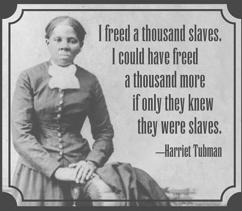 .jpg) Graphics from www.northernsun.com used with permission. |
1. "Freshman Funk." by W. Herbert; OR (alternate choice) 2. "Predictors and Consequences of Sexual 'Hookups' Among College Students." (Link may not work off campus) OR (alternate choice) 3. Article from New York Times on problems with contemporary dancing. ------------------------------------------- Mon.: Argumentation Essay Assigned. Subjects: Use a strict ISARC five-part format for your argumentation essay. Number your paragraphs. Choose only one of the following four questions to argue:
1.
Argue whether it is good or
not good for someone to participate in casino gambling, and
why. 2. Argue for or against the idea that college varsity athletes should demand and get a professional salary and benefits for the hard work they do risking their bodies on the field, just like other professional athletes. Your audience is the UTEP Student Government Organization. 3. Argue for or against the idea that UTEP professors should always let their students fail if they want to, and should never bother, get upset with, hassle or look down on students who choose not to turn in homework, or who have too many absences. 4. Argue for or against the proposition that all restaurant and food service workers should try to organize protective associations or workers' unions in their workplace in order to protect their rights. Your audience is made up of a small group of UTEP women students of your own age, of various racial and ethnic groups, who all work together with you in a certain El Paso fast food restaurant.
Important: Be decisive and take a clear stand on one side or the
other on the question you choose. Invent new, creative and original
arguments; do not
just repeat the same old off-the-shelf arguments you've heard before. Be
sure to give warrants or evidence to prove and support any argument you offer.
Your ultimate goal is not just to convince your audience to agree with your standpoint, but to get them do DO
something about it! Worth 20% of semester grade Refresher: How to write an introduction and a conclusion. Do Prewriting Worksheet 1 for Argumentation Essay. --- Wed (tentative).: Do Prewriting Worksheet 2. Resources: Slavery and the 2012 electoral map and University Of Alabama Student Government Votes To Leave All-White Sororities Alone(Respond in ISARC format.) Friday, April 18, Study Day. No classes.
|
|||||
|
Week 13: Apr. 21-25, 2014
|
Chapter 11: Classification Chapter 12: Cause-Effect Chapter 13: Comparison |
Reading Journal on "Fugitive Slaves in Mexico." Argumentation Essay continued Mon: Tentative: Prewriting Worksheet 3. Wed: Peer Review of Argumentation Essay Audio: Afro-Mexican Studies . Resource: NY Times Article Respond to resource--What should our response be? Argue in ISARC format. |
||||||
|
Week 14 : Apr. 28 -May 2, 2014 |
Chapter 28: Comma Chapter 14: Argumentation |
Reading Journal on your choice of either:
or "How Poor Mental Health and Casual Sex Reinforce Each Other"
Tentative: Video related to theme of class. Other review depending on needs of class.
http://www.npr.org/2014/05/02/308899307/crisis-in-eastern-ukraine-takes-a-deadly-turn
Argumentation Essay Final Draft Due Friday at beginning of class.
|
||||||
|
Week 15. May 5-8, 2014 |
Evaluations
ALL READING JOURNALS FROM 2nd HALF OF SEMESTER DUE online in Dropbox Mon. before class.
Review for final exam. Resource: New York Times article.
May 8: Last day of classes and complete withdrawal from the University |
|||||||
|
Week 16
|

|
|||||||
You should expect to spend SIX to NINE HOURS every week outside of the classroom working on this class (online, researching, discussing, writing, and most of all, reading). If you are not willing to devote this amount of time on the course, you cannot expect to do well.
|
For educational purposes only. |
O.W. 12/13
| Owen M. Williamson - Education Bldg 211E - phone: (915) 747 7625 - fax: (915) 747 5655 |
| The University of Texas at El Paso - 500 W. University Ave. - El Paso, TX 79968 |
| Important Disclaimer |
![]()
Open Courseware | OCW |This work is dedicated to the Public Domain..

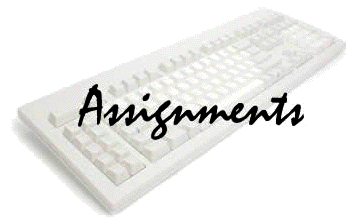


 Meet in
coffee-shop Wed. for Library walk-through.
Meet in
coffee-shop Wed. for Library walk-through. 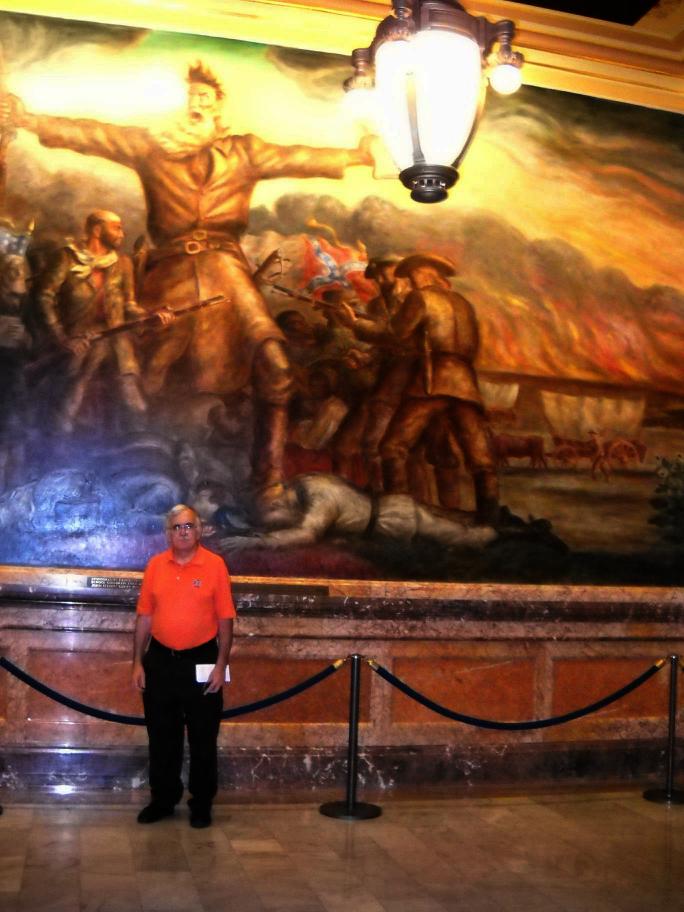
.png)
